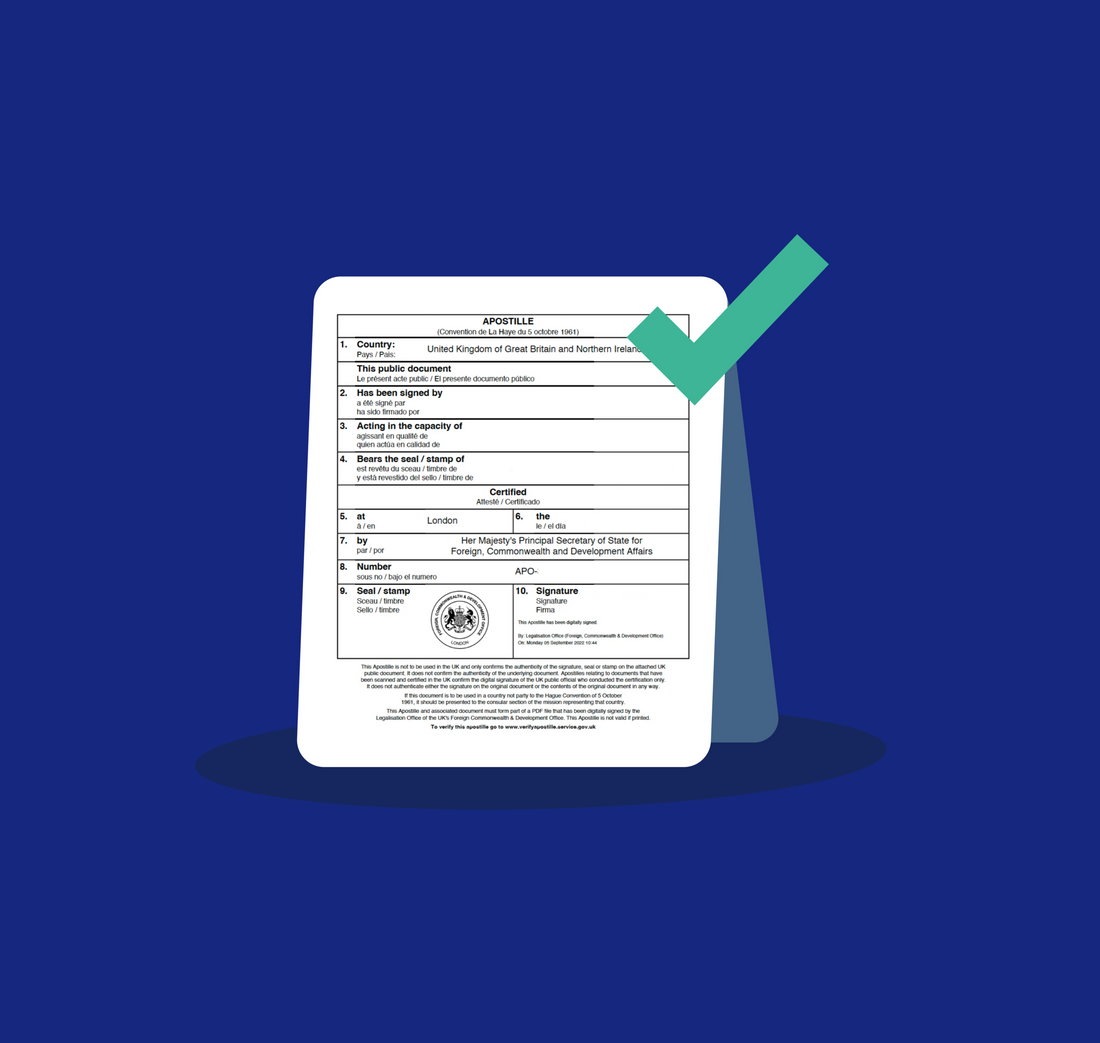What is an Apostille? A Simple Guide to Document Legalisation
An apostille is a certificate that verifies a document’s authenticity for use abroad, such as birth certificates or diplomas. Learn why you need one, whether notarisation or certification is required, and how the process works in this simple guide to document legalisation.
What is an apostille? It’s a certificate that legalises documents like birth certificates, marriage licences, or diplomas for use abroad. Discover why notarisation or certification is needed and how the apostille process works in this simple, UK-focused guide to document legalisation.

If you’ve needed to use a document like a birth certificate, marriage licence, or diploma abroad, you may have heard of an “apostille.” But what is it? This blog post explains what an apostille is, why it matters, and how it works in simple terms.
What is an Apostille?
An apostille is a certificate that verifies a document’s authenticity, making it legally valid for use in another country. It confirms that the signatures, seals, or stamps are genuine—an international “stamp of approval” for your paperwork.
The apostille system stems from the Hague Apostille Convention of 1961, which simplifies document legalisation for over 120 member countries, including the UK, US, and most EU nations. If both your country and the destination country are part of this convention, an apostille is usually sufficient for your document to be accepted abroad.
Why Do You Need an Apostille?
You might need an apostille for:
- Immigration: Submitting birth certificates or marriage licences for visa applications.
- Education: Providing diplomas or transcripts for studying abroad.
- Business: Legalising contracts or powers of attorney for international dealings.
- Personal Matters: Validating documents for international adoptions or inheritances.
Without an apostille, foreign authorities may reject your documents, causing delays.
Does Your Document Need Notarisation or Certification First?
In most cases, yes, your document must be notarised or certified before getting an apostille:
- Notarisation: A notary public verifies the signer’s identity and the document’s authenticity. For example, a power of attorney or affidavit often needs notarisation.
- Certification: Documents like birth certificates or court records may need certification by the issuing authority (e.g., a government office) to confirm they’re legitimate.
Requirements vary by document and country, so check with the apostille-issuing authority (e.g., the Foreign, Commonwealth & Development Office in the UK).
How Does the Apostille Process Work?
The process is straightforward:
- Prepare the Document: Ensure it’s notarised or certified if required.
- Submit to the Authority: Send or deliver the document to the apostille-issuing office.
- Verification: The authority checks the document’s signatures, seals, or stamps.
- Apostille Issued: A certificate is attached, often as a separate page or stamp.
- Use Abroad: Your document is now ready for use in the destination country.
Processing can take days to weeks, depending on the country. Expedited services may be available.
FAQs About Apostilles
Q: Which countries accept apostilles?
A: Over 92 countries in the Hague Convention, listed on the Hague Conference website.
Q: Can I apostille a photocopy?
A: Sometimes, but it usually needs notarisation or certification first.
Q: How much does an apostille cost?
A: Costs vary, typically £69–£250 per document in the UK.
Final Thoughts
An apostille is essential for using official documents abroad, ensuring smooth processes for immigration, education, or business. Confirm whether your document needs notarisation or certification and check the issuing authority’s requirements.
Need help? Contact us : +44 (0) 203 597 9800 Stay tuned for more tips on international documentation!